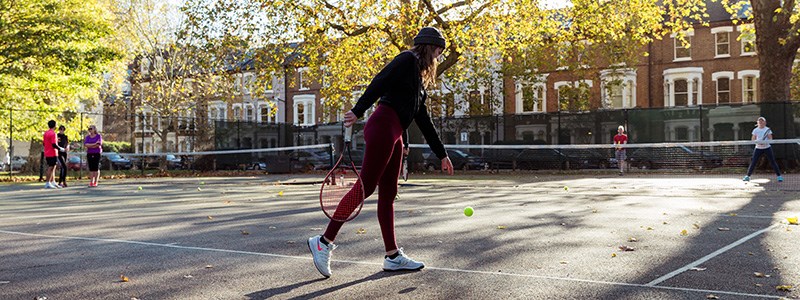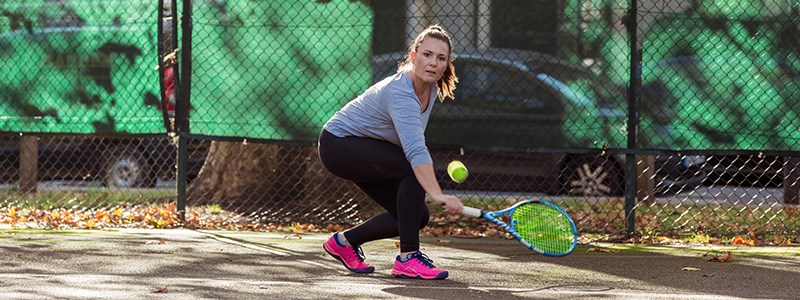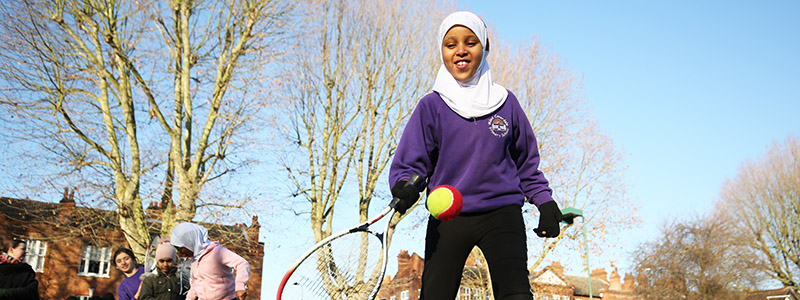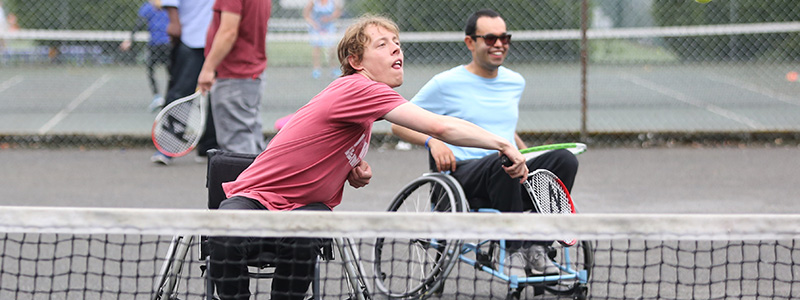
How tennis can help boost your mental wellbeing
• 4 MINUTE READ
Over a year on from the start of the pandemic and three lockdowns later, it has never been more important to take proactive steps in looking after your mental health.
Regular exercise, such as the odd game of tennis with friends in your local park, is one of the best ways you can improve your wellbeing and mental health. Exercising causes your body to release endorphins which trigger a positive feeling and make you feel better.
For this year’s Mental Health Awareness Week, the LTA Psychosocial team has pulled together some advice on why tennis is such a great sport to stay mentally healthy. Experts James Bell, Rachel Newnham, Dominic O’Hara, Matt Thompson and Lena Kessler give their suggestions on how to build resilience and strive within a support group.

Do you think playing tennis generally helps to boost mental health?
“This is a definite yes – exercise boosts serotonin levels and playing tennis provides the pursuit of achieving something which helps mental health considerably."
"We see that players who maintain a healthy level of training and exercise report an uplift in their wellbeing. Exercise in conjunction with good sleep, nutrition and hydration all help to boost mental wellbeing."
"Tennis at a recreational level is a very social support, for example the LTA Local Tennis Leagues present a great opportunity for getting involved in the community and meeting new people through healthy competition."
What are your top three tips that you give to players to help them look after their mental wellbeing?
“Reflect on challenges you have experienced and focus specifically on the positives that you have learnt. Record these experiences in a journal - this helps the mind to logically work through the process.
"Stay connected with friends and family as much as possible – having a good support group around you can help to build your resilience.
"It can also help to create small goals for yourself, which you can tick off every day to help give you feel accomplished and build a consistent sense of purpose.”
How do you think playing tennis helps players be mentally strong in other aspects of their life?
“Tennis requires a certain level of commitment, dedication and perseverance. A key importance for a tennis player is not only their ability to play but their ability to recover and persevere when they encounter a set-back, such as losing a game or not playing to the best of their ability.
"To be resilient is a skill, the more we practice it the better we become. We work with players to develop their resilience through reflecting on when things didn’t go to plan. We examine the experience, unpick it and look for the positives in it to see what we can learn from it.
"A network of support is crucial for players to be resilient; reaching out to their support group helps them to overcome challenges. We actively encourage players to reach out to other and help them feel confident to ask for help when it is needed."
How do you advise that players prepare mentally before a tennis game?
“Every player’s pre-performance routine is different, what works for one may not work for another. However, there are certain behaviours which you can engage in to help yourself feel more psychology prepared. These are:
- "Develop a clear pre-performance routine which helps you get in the right mindset, for example practice mindfulness via a meditation app. Ensure that you check-in with yourself both physically and mentally. To prepare mentally make sure you are happy with your game plan and strategy.
- Visualise the match before you play, reflecting on what works for you and has worked in the past.
- "Think about what could stop you from winning the game and what challenges you might face. This helps you to overcome the challenges in calmer, more logical space before you get out on court.”
Find out more about mental health and physical activity in the latest toolkit from Mind.







